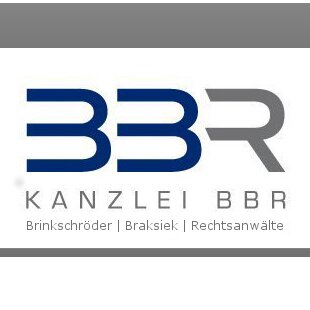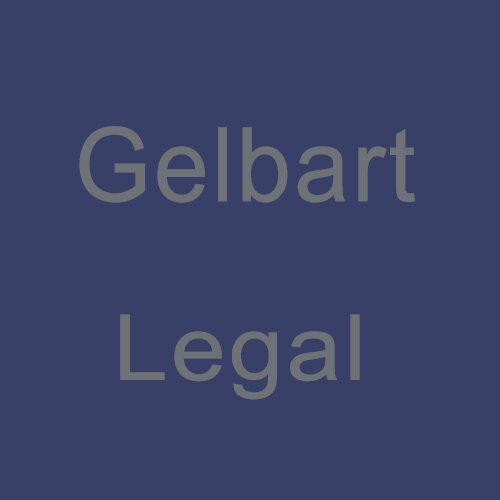Best Transportation Lawyers in Germany
Share your needs with us, get contacted by law firms.
Free. Takes 2 min.
Or refine your search by selecting a city:
List of the best lawyers in Germany

About Transportation Law in Germany
Transportation in Germany is governed by a series of laws and regulations that aim to ensure the safety and efficiency of the transport system. This includes laws related to road traffic, public transportation, aviation, and maritime transport. Understanding these laws is crucial for both individuals and businesses involved in the transportation industry.
Why You May Need a Lawyer
There are various situations where you may require legal help in the field of transportation in Germany. This can include personal injury claims following a traffic accident, disputes with insurance companies, issues with licensing and permits, and contractual disputes with transportation companies. A lawyer can help you navigate the complex legal system and ensure your rights are protected.
Local Laws Overview
In Germany, transportation laws are regulated by the Federal Ministry of Transport and Digital Infrastructure. Some key aspects of local laws that are particularly relevant to transportation include traffic regulations, vehicle registration and insurance requirements, public transportation laws, and rules governing the transport of goods. It is important to be aware of these laws to avoid legal issues and penalties.
Frequently Asked Questions
1. What should I do if I am involved in a traffic accident in Germany?
If you are involved in a traffic accident in Germany, you should contact the police and seek medical assistance if needed. It is also important to exchange contact and insurance information with the other parties involved. You may need to file a claim with your insurance company or seek legal advice if there are disputes over liability.
2. Do I need a special license to operate a commercial vehicle in Germany?
Yes, you will need a specific commercial driver's license to operate a commercial vehicle in Germany. This license is obtained through a series of tests and training programs to ensure you are qualified to operate such vehicles safely and legally.
3. Are there regulations on the transport of hazardous materials in Germany?
Yes, there are strict regulations in Germany governing the transport of hazardous materials. These regulations include proper labeling, packaging, and handling of hazardous materials to ensure the safety of both transportation workers and the public.
4. Can I appeal a traffic ticket in Germany?
Yes, you can appeal a traffic ticket in Germany by going through the designated legal process. It is important to seek legal advice before doing so to ensure you have a strong case and understand the potential consequences of appealing the ticket.
5. What are my rights as a passenger in Germany?
Passengers in Germany have the right to expect safe and reliable transportation services. This includes the right to compensation in the event of delays or cancellations, as well as the right to file complaints if the service provided does not meet the required standards.
6. Is it mandatory to have car insurance in Germany?
Yes, it is mandatory to have car insurance in Germany. This insurance should cover liability for any damages or injuries caused by your vehicle. Driving without insurance can result in hefty fines and other penalties.
7. What are the regulations for bicycle transportation in Germany?
In Germany, bicycles are considered vehicles and must adhere to the traffic regulations just like cars and motorcycles. This includes following traffic signals, using proper lighting at night, and yielding to pedestrians. It is important to be aware of these regulations to ensure your safety on the road.
8. Can I sue a transportation company for damages in Germany?
Yes, you can sue a transportation company for damages in Germany if you have suffered losses as a result of their negligence or breach of contract. It is advisable to seek legal advice to assess the strength of your case and determine the best course of action.
9. Are there restrictions on the use of drones for transportation purposes in Germany?
Yes, there are restrictions on the use of drones for transportation purposes in Germany. These regulations include requirements for registration, licensing, and compliance with safety standards to prevent accidents and protect privacy rights.
10. How can I report a transportation safety violation in Germany?
If you witness a transportation safety violation in Germany, you can report it to the relevant authorities, such as the Federal Ministry of Transport or the local police department. Providing detailed information and evidence of the violation can help them take appropriate action to address the issue.
Additional Resources
For more information on transportation laws in Germany, you can visit the official website of the Federal Ministry of Transport and Digital Infrastructure. You can also contact legal aid organizations or consult with a transportation lawyer for personalized advice and assistance.
Next Steps
If you require legal assistance in the field of transportation in Germany, it is recommended to seek advice from a qualified transportation lawyer who can guide you through the legal process. Be sure to gather all relevant documents and information related to your case to help the lawyer assess your situation and provide the best possible outcome.
Lawzana helps you find the best lawyers and law firms in Germany through a curated and pre-screened list of qualified legal professionals. Our platform offers rankings and detailed profiles of attorneys and law firms, allowing you to compare based on practice areas, including Transportation, experience, and client feedback.
Each profile includes a description of the firm's areas of practice, client reviews, team members and partners, year of establishment, spoken languages, office locations, contact information, social media presence, and any published articles or resources. Most firms on our platform speak English and are experienced in both local and international legal matters.
Get a quote from top-rated law firms in Germany — quickly, securely, and without unnecessary hassle.
Disclaimer:
The information provided on this page is for general informational purposes only and does not constitute legal advice. While we strive to ensure the accuracy and relevance of the content, legal information may change over time, and interpretations of the law can vary. You should always consult with a qualified legal professional for advice specific to your situation.
We disclaim all liability for actions taken or not taken based on the content of this page. If you believe any information is incorrect or outdated, please contact us, and we will review and update it where appropriate.
Browse transportation law firms by city in Germany
Refine your search by selecting a city.














